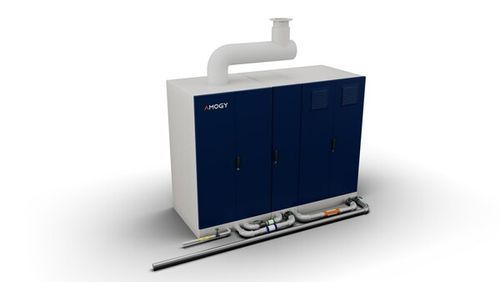A group of agricultural trade associations have delivered a letter to the Treasury department expressing concern on the 40B SAF tax credit and offering recommendations for the 45Z Clean Fuel Production Credit.
The letter, signed by the American Farm Bureau Federation, National Corn Growers Association, American Soybean Association, and National Farmers Union, notes that the “45Z tax credit has the potential to be a game-changer for our industry, offering a valuable incentive for the production and use of biofuels that will lower carbon emissions. However, without clear domestic feedstock requirements, the benefits of this policy are at risk of being diverted from American farmers.”
It continues: “Currently, the guidance does not mandate the use of domestically sourced feedstocks for eligibility, opening the door for imported materials to be used in biofuel production. This not only undermines the economic stability of American farmers but also contradicts the broader goal of supporting U.S. agriculture and rural communities. The absence of domestic feedstock requirements can lead to increased reliance on imports, benefiting foreign countries, thereby reducing the demand for homegrown agricultural products and threatening the livelihood of American farmers.
Incorporating domestic feedstock requirements would provide a direct and substantial benefit to U.S. agriculture. By ensuring a prioritization for biofuels produced from American-grown feedstocks under the 45Z tax credit, we can stimulate domestic agricultural production, create jobs and strengthen rural economies. We believe this approach aligns with the administration’s broader objectives of promoting economic growth and sustainability within the United States.
Moreover, domestic feedstock requirements would enhance the environmental benefits of the 45Z tax credit. Locally sourced feedstocks typically have a lower carbon footprint compared to imported materials due to reduced transportation emissions. Additionally, without clear and transparent understanding of the verification of imported waste feedstocks from point of origin to point of import, there is no way to fully calculate their true carbon footprint. By prioritizing American-grown feedstocks, we can achieve greater greenhouse gas reductions, aligning the policy more closely with its intended environmental objectives.
Additionally, we have significant concerns about the bundling of climate-smart agriculture (CSA) practices within the SAF guidance and the cumbersome reporting requirements. While the intention behind promoting these practices is commendable, the current requirements are onerous and unworkable for many farmers. According to available Natural Resources Conservation Service data, the guidelines for climate-smart practices are complex and only feasible in select geographies, excluding a large portion of farmers from participating. This geographical limitation not only creates an uneven playing field but also fails to recognize the diverse agricultural conditions across our nation.
The bundling of these climate-smart practices adds layers of complexity and costs that many farmers simply cannot bear and will not pursue if not paid a premium. The implementation of no-till farming, cover cropping and enhanced efficiency fertilizers requires significant upfront investments in both time and resources. Without a greater incentive, many farmers may simply be unable to implement these bundled practices based on economic limitations alone. Moreover, even if geography allows farmers to comply with the CSA requirements, the cumbersome reporting requirements will dissuade even the most sophisticated farming businesses from participating. Additional options for compliance must be considered that would give farmers the ability to comply with CSA requirements without running afoul of the Internal Revenue Service. If this flexibility is not granted, the CSA requirements will become barriers rather than enablers of sustainable farming.
We urge the administration to reconsider these bundled requirements and instead provide more tailored and accessible guidelines that account for the varying capabilities and conditions of farmers across the country. The U.S. Department of Agriculture has identified a myriad of CSA practices that farmers are already employing, based on need, soil type, farm size and more. Simplifying these requirements and offering greater support for farmers to adopt climate-smart practices will be crucial to ensuring broader participation by producers.”





